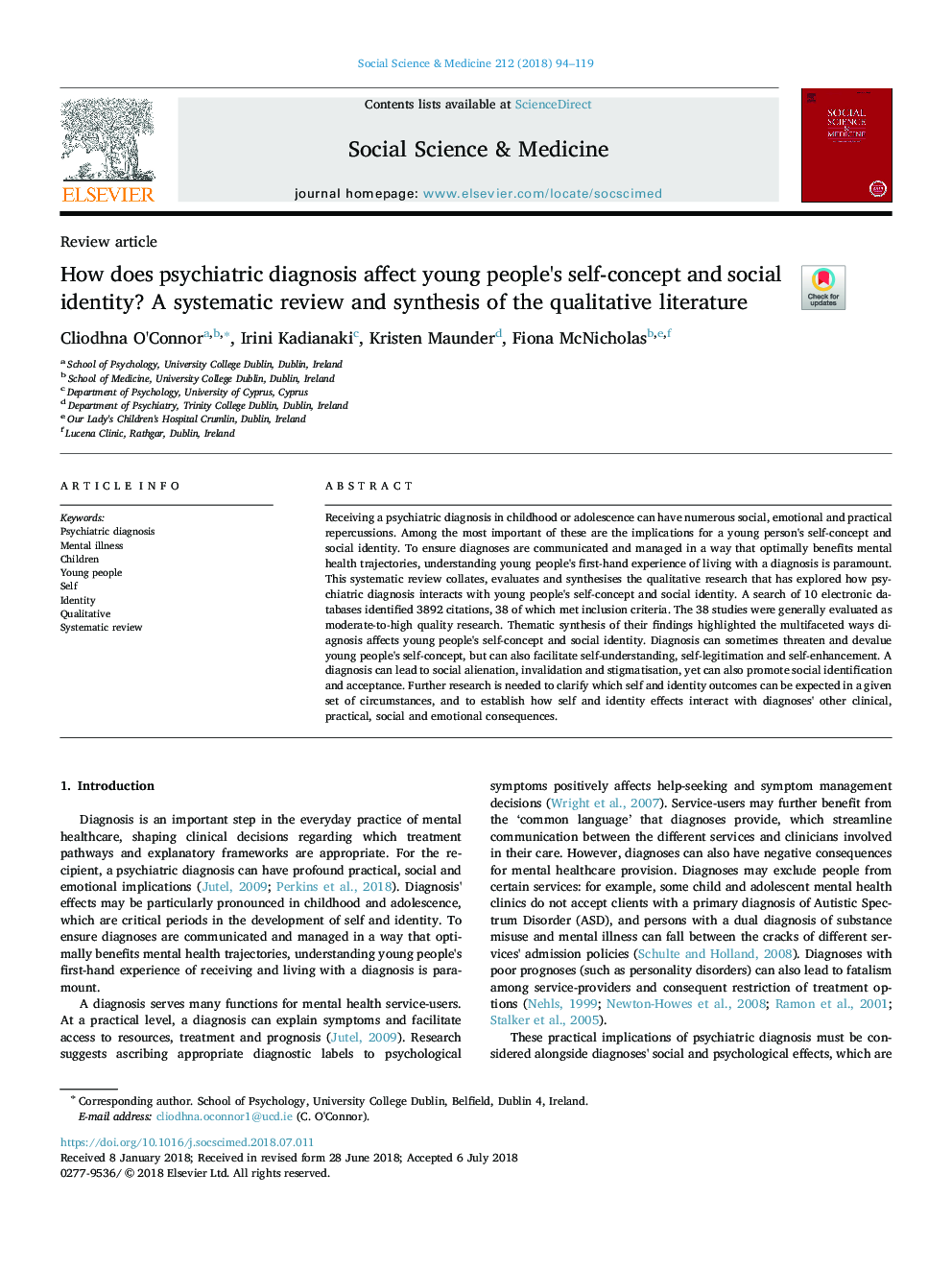| Article ID | Journal | Published Year | Pages | File Type |
|---|---|---|---|---|
| 7327168 | Social Science & Medicine | 2018 | 26 Pages |
Abstract
Receiving a psychiatric diagnosis in childhood or adolescence can have numerous social, emotional and practical repercussions. Among the most important of these are the implications for a young person's self-concept and social identity. To ensure diagnoses are communicated and managed in a way that optimally benefits mental health trajectories, understanding young people's first-hand experience of living with a diagnosis is paramount. This systematic review collates, evaluates and synthesises the qualitative research that has explored how psychiatric diagnosis interacts with young people's self-concept and social identity. A search of 10 electronic databases identified 3892 citations, 38 of which met inclusion criteria. The 38 studies were generally evaluated as moderate-to-high quality research. Thematic synthesis of their findings highlighted the multifaceted ways diagnosis affects young people's self-concept and social identity. Diagnosis can sometimes threaten and devalue young people's self-concept, but can also facilitate self-understanding, self-legitimation and self-enhancement. A diagnosis can lead to social alienation, invalidation and stigmatisation, yet can also promote social identification and acceptance. Further research is needed to clarify which self and identity outcomes can be expected in a given set of circumstances, and to establish how self and identity effects interact with diagnoses' other clinical, practical, social and emotional consequences.
Keywords
Related Topics
Health Sciences
Medicine and Dentistry
Public Health and Health Policy
Authors
Cliodhna O'Connor, Irini Kadianaki, Kristen Maunder, Fiona McNicholas,
